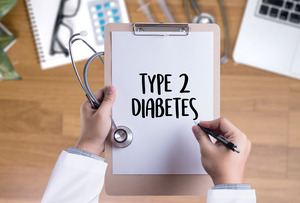Uncovering the Relationship Between Type 2 Diabetes and Sleep Apnea
April 27, 2024

Sleep apnea is a serious sleep disorder that can be highly detrimental to your overall health. However, some consequences are less obvious than others. In the case of sleep apnea, many people don’t realize that it can potentially share a close relationship with type 2 diabetes. Read on to find out how your sleep-disordered breathing and your blood sugar levels might be connected.
What Exactly Is Sleep Apnea?
Having sleep apnea means that your breathing is repeatedly interrupted while you’re asleep. Most of the time, sleep apnea is caused by the airway becoming obstructed in some way. Due to the interruptions in breathing, the body’s oxygen levels will significantly decrease, which can lead to heart problems, high blood pressure, and issues with metabolism.
There are several symptoms associated with sleep apnea. People who have the disorder often snore loudly, gasp for air while they’re asleep, are excessively tired during the day, and have trouble paying attention.
How are Sleep Apnea and Type 2 Diabetes Linked?
More than half of all people with type 2 diabetes also suffer from sleep apnea. This can largely be explained by the impact sleep apnea has on the body. A lack of quality slumber can lead to insulin resistance, thus causing high blood sugar. In other words, sleep apnea can significantly increase your risk of developing diabetes.
Another factor to keep in mind is that type 2 diabetes and sleep apnea share a common risk factor – namely, obesity. Not only can being overweight make it more likely for the body to develop insulin resistance, but it can also cause fat deposits to form in the neck; if said deposits block the airway while you’re asleep, the result can be a sleep apnea episode.
What Can You Do About Sleep Apnea and Type 2 Diabetes?
Obviously, you’ll want to talk to your regular physician about what you can do to manage your type 2 diabetes. That said, if you currently have sleep apnea, then you should definitely make addressing it a priority; ignoring the problem could potentially make your diabetes worse.
Sleep apnea is traditionally treated with a CPAP machine, but this option is less than appealing for many patients. Many individuals find that the machine is too noisy or uncomfortable for them to get a good night’s rest. Fortunately, your dentist may be able to offer an oral appliance as an alternative. The device can help you maintain an open airway so that you don’t have to worry about the flow of air being blocked during the night.
You can’t afford to leave type 2 diabetes and sleep apnea alone for too long. If you have any reason to think you may be suffering from one or both of these conditions, you should immediately take steps to seek treatment from a professional.
About the Author
Dr. Michael A. Putt is a graduate of Tufts Dental School, and he completed his Advanced Education in General Dentistry residency while he was serving in the Army. Among the many services he offers at Wayland Dental, he is proud to provide oral appliances for patients with sleep apnea. To schedule a consultation with Dr. Putt, visit his website or call (508) 651-0500.
